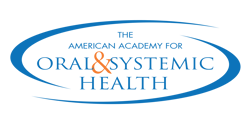Blown Away By Airway
Did you know that the Center for Disease Control and Prevention (CDC) in the United States has declared insufficient sleep as a 'public health problem'?
It’s true!
According to a recent CDC study, more than a third of American adults are not getting enough sleep on a regular basis.
Poor sleep and insomnia don’t just set us up for a difficult and exhausting next day. Lack of adequate sleep over time can have devastating consequences to our overall health including damage to brain function, impaired heart function, increased risk for anxiety and depression, a decrease to our immune functions, an increase in our likelihood for stress-related diseases and more.
As an optimal health care professional on a mission to help patients live their healthiest lives, this is an important topic that you need to know.
What does poor sleep have to do with dentistry, you might ask?
A lot.
The correlation between airway health and disordered sleep is staggering. Yet for many dentists, they weren’t trained to truly understand the powerful connection between airway and sleep nor were educated on how to include sleep issues and airway health in their patient treatment plans.
When we think of insomnia or other sleep disturbances, we often are in the habit to blame stress, anxiety, poor diet or lack of exercise as the culprit. Yet, the reality is that these are just the symptoms that a patient experiences as a result of their sleep issues and not the root cause.
Imagine, you wake up in the middle of the night anxious and stressed. Your first thought is probably not “I must not be breathing properly due to an airway impairment caused by the structural changes of my lower jaw.” Rather, your reaction would probably be more along the lines of “Oh gosh... I must be worrying again about that big work decision” and you try to calm your thoughts and go back to sleep. You probably don't bring these concerns to your doctor or your dentist and shove the symptoms under the rug.
Sound familiar?
The issue here is that when we push these health issues under the “rug” for too long the symptoms get louder until our bodies start screaming at us that something is really wrong.
As optimal health care professionals, this isn’t what you want for your patients. You want to help them live their lives as healthy and happy as possible.
That is why it is imperative that you become educated and empowered around airway and sleep disorders and know what symptoms to look out for in your patients that might be suffering from this health issue and not even know it.
Some ways that sleep disorders, caused by airway issues, can physically manifest in patients are:
- Waking up multiple times throughout the night
- Waking up in the morning unrested and groggy
- Struggling with energy throughout the day
- Mouth breathing during the day or night (or both)
- Snoring
- Teeth grinding or clenching at night
- Allergy or asthma issues
- Headaches
- Depression and anxiety
Once you can identify these symptoms you can better examine your patients at every appointment as you get to know their sleep habits and patterns. This is your opportunity to sweep underneath your patient's metaphorical rug and examine what's really going on with them if anything when it comes to their sleep health.
Most airway issues that create disordered sleep occur from structural issues in the upper & lower jaws, tongue, nasal cavity, dental structure challenges and joint function of the jaw. When the structural components of the mouth and jaw are out of whack, the airway narrows which results in disordered breathing and lack of adequate sleep. Researching and empowering yourself on airway health is imperative to being able to diagnose and treat your patients.
We do better when we know better and allowing yourself to learn about airway health and be blown away by airway won’t just make you a better dentist it could literally save the life of one of your patients.
To learn how to incorporate airway health in your practice, find an event near you by visiting https://nextlevelpractice.com/events/category/live-events/
Reference
Hafner, Marco, Martin Stepanek, Jirka Taylor, Wendy M. Troxel, and Christian Van Stolk, Why sleep matters — the economic costs of insufficient sleep: A cross-country comparative analysis. Santa Monica, CA: RAND Corporation, 2016. https://www.rand.org/pubs/research_reports/RR1791.html.
About the Author
Gary Kadi is a pioneer in leading the Oral Systemic Health Movement. His ground breaking documentary Say Ahh… is a go-to educational source for dental and medical practices, and hygiene, nursing, medical and dental schools. His mission is to have the public equate dentistry with over all health and for dentists and their teams to be a vital component of sustainable health and longevity. His trainings, educational workshops, and annual implementation coaching programs provide dental and medical teams a systematic process for team engagement and patient treatment acceptance. Gary and the teams he collaborates with are on a mission to get 30 million people healthier by the year 2020.
